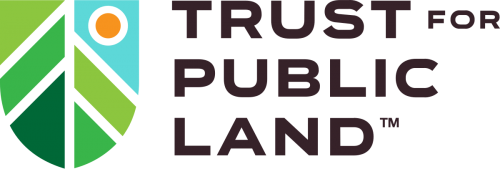(BRAIN) — A report by a national nonprofit outdoors organization to quantify the economic impact of U.S. mountain biking tourists estimated that an average of $416 is spent per visit toward lodging, restaurants, and retailers.
"Economic Benefits of Mountain Biking" by the Trust for Public Land (TPL) aimed to identify direct and indirect economic benefits of mountain biking in communities. It concluded spending varied by trail location and type, ranging from just over $100 to more than $1,000 per visit.
It also noted that mountain bike trails generate employment opportunities. In the 13 locations cited in the report, trail networks created up to 1,626 jobs and $54.1 million in labor income yearly.
"We know that creating or improving trails — and related riding opportunities like skills areas — can add value to a community for residents and visitors alike," George Chevalier, International Mountain Bicycling Association promotions manager, told BRAIN in an email. IMBA served as an advisor to TPL on the Economic Benefits of Mountain Biking report, contributing example trail projects along with related community impacts, return on investment figures, and connections with stakeholders.
"However, it's quite staggering to see the scale of that impact represented through total business, employment and tourism activities," Chevalier added. "... Nationally, the outdoor recreation economy generates an estimated $124.5 billion in federal, state, and local tax revenues, and consists of nearly five million jobs. This is a serious opportunity, and it's growing."
The report did not distinguish between regular mountain bikes and e-MTBs; Chevalier said the objective "was to carry out a rigorous analysis to highlight examples of rural communities taking part in the outdoor recreation economy through creating or enhancing mountain biking opportunities of all kinds."
The study was conducted from 2014 through 2024 and centered on mountain biking rather than cycling in general. The 13 trail systems in the study were located in Alabama, Colorado, Maine, Minnesota, Montana, New Hampshire, North Carolina, Oregon, South Dakota, Tennessee, Utah, Vermont, and Wisconsin. The trust said about half of the trails are in rural areas and the other in more urban areas.
Four other studies were conducted measuring the economic impact of mountain bike events taking place in Alabama, Michigan, Virginia, and Whistler, British Columbia. For example, at the Crankworx Whistler Festival, the 2023 event generated about $38.5 million USD with more than 300,000 in attendance, 61% of whom were visitors, according to the report.
Citing separate studies from other organizations within the TPL report, the number of U.S. mountain bikers increased in the past 20 years, with about 8.7 million as of 2021. The typical mountain biker is white, male (between 32 and 52), affluent, and takes an average of five trips yearly. While mountain biking increased during COVID, it has declined since, in line with reduced participation across all outdoor recreation activities.
Indirect economic benefits of mountain biking, the TPL report notes, include improved quality of life, increased property values for homeowners who live near trails and an expanded customer base for nearby business owners. Also trails can attract new businesses, the report noted. The study notes that Trailforks (a sister site to BRAIN owned by Outside) identifies more than 244,000 U.S. trails, covering a distance of more than 300,000 miles.
Best practices for trail development and long-term sustainability planning are also discussed in the report, which was supported by the Elliotsville Foundation and Norfolk Southern Railways.
"This report celebrates communities' ingenuity and elevates them as examples that can be adapted by others facing similar challenges," Chevalier said. "By coupling the lessons and desired outcomes in this report with the proven tools, education, and programs provided by organizations like TPL and IMBA, communities will be able to accelerate their own path toward their particular desired outcomes."


